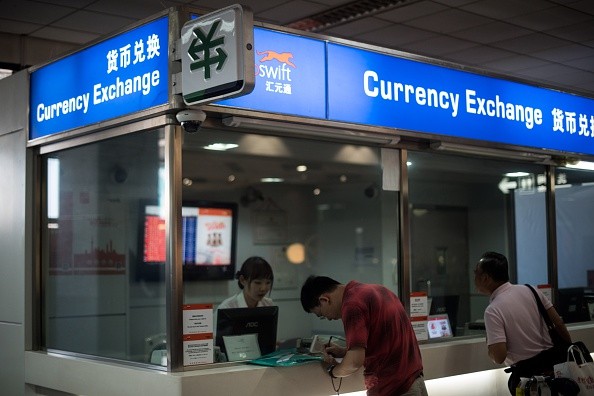China's foreign currency holdings fell by $320 billion in December last year, following a six-month decline, while the yuan made its sharpest annual drop, Bloomberg reported.
On Saturday, Jan. 7, the People's Bank of China (PBOC) said that its foreign reserves fell $41.1 billion to $3.01 trillion, a five-year low record.
Meanwhile, the State Administration of Foreign Exchange (SAFE) said in a statement that last year's drop occurred as a result of the PBOC's effort to stabilize the Chinese currency. China's reserve, the largest stockpile in the world, has dropped to $4 trillion in 10 straight quarters in June 2014, while the yuan sunk to its lowest level in eight years.
"Looking ahead, China should and probably will continue implementing strict capital controls," Yu Xiangrong, an economist at China International Capital Corp. in Hong Kong, said in a report.
"Reserves may fall below $3 trillion in January. Although this will not change the basic situation of its reserve adequacy as measured by various metrics, it will have a psychological impact and may induce additional market pressures," Yu added.
But despite the decline of the yuan and the reserves, other benchmark indicators show the strengthening of the economy. Both manufacturing and services were relatively strong in 2016, which indicated that expansion in these sectors is expected to drive policymakers to push for reforms this year. Economists project growths between 2016 and 2017.
According to the statement by SAFE, the foreign exchange reserves dropped in December because PBOC provided the funds to keep the foreign exchange market stable and prevent devaluation of non-U.S. dollar currencies.
On Jan. 1, Chinese policymakers stepped up measures to curb capital outflows, which included additional requirements for individuals who want to convert their yuan to foreign currencies, with the limit of $50,000.
"The combination of policy-induced yuan stabilization and higher reporting requirements for households buying FX will buy the PBOC a little breathing room, preventing escalating outflows in the first month of the year," Tom Orlik, chief Asia economist at Bloomberg Intelligence in Beijing, said in a report.
Gao Yuwei, a researcher at the Bank of China Ltd.'s Institute of International Finance, said that now, instead of spending the foreign currency reserves, policymakers prefer implementing capital controls.
However, the yuan still face uncertainties as the dollar may continue its rally in January and the Federal Reserve may raise U.S. interest rates in the future, Wen Bin, a researcher at China Minsheng Banking Corp., said.
China's gold reserves changed a bit, from $69.8 billion a month earlier to $67.9 billion in December, as officials maintained it at 59.24 million troy ounces for a second month in December.
"China's government is well positioned to control outflows more effectively if it wants to, though it may not want to be seen as reversing China's 'opening' strategy," Wang Tao, head of China economic research at UBS Group AG in Hong Kong, said in a note.
"In the long run, it may not have much choice if FX reserves fall more sharply on the back of intensifying capital outflow pressures."



























